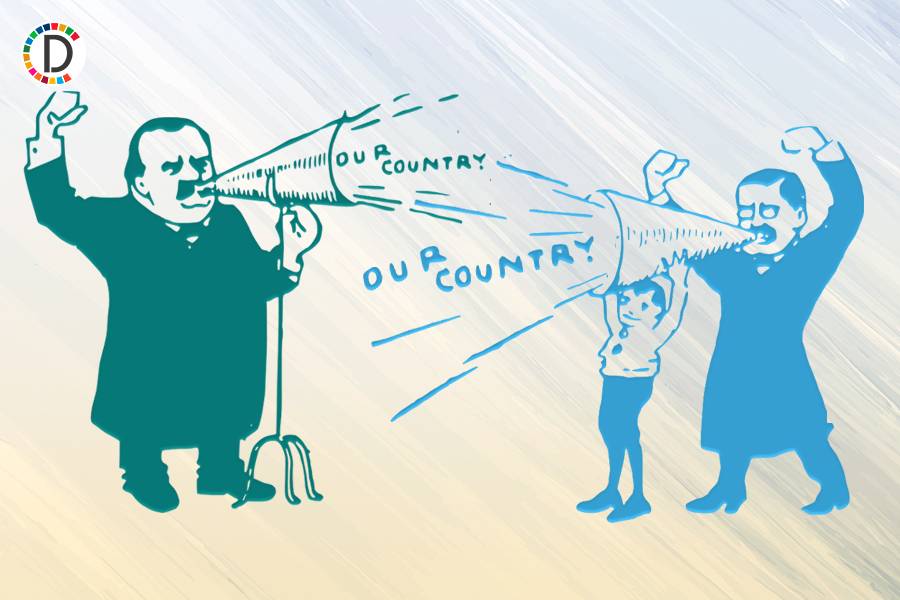Martin Schlegel's Challenge: Steering the Swiss National Bank Amid Economic Uncertainty
Martin Schlegel's appointment as the new chairman of the Swiss National Bank brings a series of challenges including managing a massive balance sheet and steering the bank's larger monetary policy aims. Schlegel steps into big shoes, replacing Thomas Jordan, and faces rising scrutiny on financial stability and banking regulations.

New rules to regulate Switzerland's outsized banking sector and how to manage a huge balance sheet which risks massive losses top the list of challenges facing next Swiss National Bank chief Martin Schlegel, economists say.
Schlegel will take over as chairman of the central bank at the end of September, replacing Thomas Jordan who is stepping down early after 12 years at the helm. The 47-year-old, who started his career as Jordan's intern at the SNB 20 years ago, will first have to step out of the long shadow of his mentor and carve his own identity.
"Thomas Jordan will be a hard act to follow – he is a first-rate economist who kept inflation under control in difficult times," said Stefan Gerlach, chief economist at EFG Bank and a former deputy governor of the Bank of Ireland. Another economist, who asked not to be named, said Schlegel would have to step up from being a tactician - he is currently in charge of implementing the SNB's monetary policy - to overseeing its larger aims and direction.
"Schlegel will now have to make the big strategic monetary policy decisions," the economist added. "That is a completely different ball game." At a news conference following his appointment on Wednesday Schlegel emphasized continuity, stressing his commitment to the SNB's mandate of price stability.
Although that goal, which means keeping inflation at 0-2%, has been achieved, the central bank under Jordan has not been without critics. A major concern is its balance sheet - nearly 860 billion Swiss francs ($958.86 billion), held mainly in bonds and shares.
It has been unable to make a payout to the Swiss government or cantons for two years, while currency swings and valuation losses caused a record 132 billion franc loss in 2022. The SNB also paid out 7.4 billion francs to commercial banks last year after interest rates turned positive.
"How do you continue policy with that massive balance sheet and how do you reduce it? Do you even want to reduce it at all?" said Sarah Lein, a professor at the University of Basel and former SNB economist. "A central bank cannot go bankrupt because it can always print money, but big losses could have a negative effect on the SNB's credibility – the most important asset for a central bank."
Although making a profit is not part of the SNB's mandate, big losses can lead to political pressure when Switzerland's cantons and central government don't get the money they were expecting. Some economists have advocated hiving off part of the balance sheet into a sovereign wealth fund to reduce the risks.
FINANCIAL STABILITY Supporting Swiss financial stability is another key SNB role - a task that has become more pressing after the takeover of Credit Suisse by UBS last year.
As well as creating a banking giant with a balance sheet twice the size of the Swiss economy, there is no longer the option of another Swiss bank coming to the rescue should the enlarged UBS get into trouble. "If UBS has a problem, so does the SNB and so does Switzerland," said Adriel Jost, an economist at the Institute for Swiss Economic Policy.
"Ultimately, the issue of banking regulation is crucial and the SNB has every incentive to play a big role in the discussions with the government and financial regulator." Schlegel - an SNB "lifer" - may also have to address criticism that the central bank has been too insular and conservative in its communications and thinking.
"The approach of the SNB needs to change – it's a pretty closed operation," said Charles Wyplosz, from the Graduate Institute in Geneva. It has also come under fire for not doing enough to tackle carbon emissions of companies it invests in.
Schlegel told reporters on Wednesday that climate change was important, although analysts don't expect the SNB to change its investment strategy soon. Basel University's Lein does not expect a big shift in SNB monetary policy under Schlegel, with price stability and preventing big changes in the value of the franc - either upwards or downwards - remaining the priority.
"The main focus of monetary policy has been successful, so there's no need to change," she said. Schlegel gave little away on Wednesday, saying only: "I believe that in the next few months and years you will have enough opportunities to get to know me."
($1 = 0.8969 Swiss francs)
(This story has not been edited by Devdiscourse staff and is auto-generated from a syndicated feed.)
ALSO READ
Kamala Harris to Address Ukraine Peace Summit in Switzerland
Global Summit in Switzerland: Aimed at Russian Isolation, Tests Ukraine's Diplomacy
Global Summit in Switzerland: Seeking Peace Amidst Geopolitical Tensions
UPDATE 1-US VP Harris announces $1.5 billion in Ukraine aid at Switzerland peace summit
World leaders meet in Switzerland to discuss a Ukraine peace roadmap. Russia is notably absent










